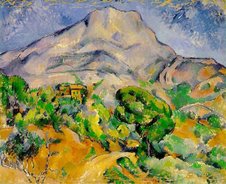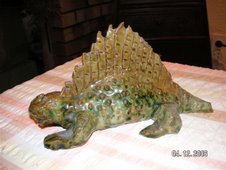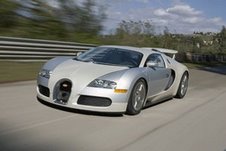
Did you read the item two days ago about gap-year students ? According to an article in the Telegraph, those adventurous young folk may be wasting time on projects.
So says the long-established VSO (Voluntary Service Overseas), claiming that what they cheekily call "voluntourism" may be doing more harm than good . According to them, teenagers looking for a life-enhancing break between school and university are being packed off to developing countries to work on one project or another without sufficient training or know how.
Here's a near-verbatim record from my travel diary, written on Day 4 of a 10 day trip into the Northern /Upper East regions of Ghana in December 1967. It describes a chance encounter I had with one Norm Haskett, a US Peace Corps worker. ( How come we never hear of the Peace Corps these days ?)
I'd be interested to hear your views on whether you think Norm Haskett was doing a valuable job or not.
(Hi, Norm, if you're reading this. No, we sadly never kept in touch, but I hope you don't mind my using your real name here, some 40 years on.).
The day I describe here was spent in a region to the east of Bolgatanga. It's a vast and largely empty savannah country up near the border with Burkina Faso (then called Upper Volta). Bolgatanga is marked on the map.
December 20th 1967 (Day 4)
"The greatest impression of my whole 4 months in Ghana. Walked out of Bolgatanga in the direction of Nangodi. The country was just my cup of tea - wide and open, with hills in the distance.
( I was) Just through Zuarungu when a beautiful green jeep stopped with Norm Haskett, Peace Corps Co-op Officer inside with young Martin ( a Ghanaian). He was going to Nangodi.
Jumped at chance to accompany him on round.
First stopped at house of Mr. Bag? (Chief of Spirits). Then moved on to meet Paramount Chief of Nangodi. Watched all the greetings being exchanged with sub-chief. ? Na ?Na ?Na Never looked at each other once.
Then came "pito" a sweet yeasty brew of guinea corn. After greetings we moved to school house for meeting proper. Norm was taking £5 per farmer.
Many had not turned up or paid. Norm sold the 'self-help' idea and said that nothing could start until (there was) £300 in the kitty. Idea was to eliminate the middle man primarily. Co-op buys produce from farmers and markets the collective produce - shea nuts, groundnuts, millet and maybe tomatoes.(We) then retired for lunch at Mr. Bag?. Had a bowl of "TZ" (maize meal), groundnut soup and chicken. More pito. Returned to Jeep, led by men with 'sitar' and calabashes.
(Was) Requested to dance. Did so to great amusement of all. About this time Mr. Bag? called me Atenga, meaning Chief of the Land. Mr. Bag liked me. He himself, however, had just withdrawn from the Coop to join a cattle one instead, he said. We went to his (dead) father's home. His father was previous chief. At place of his grave were four writhing bil-bau (baobab?) trees. Told these sprang up when Chief was buried. More dancing. More pito. Getting a bit fed up with it all at this point.
Then on to Pelogo (sp?) - sub-chief wanted his farmers educated. Felt in very subdued mood. Too much pito I guess.
Then we had to go to place on fringe of Congo district for second round of greetings. First time, said Norm, the Chief was drunk and had no recollection afterwards. He showed marked antipathy to Bolga-based farmers. Said his territory was large enough for separate Coop. This was smoothed over in mysterious way. Then drank akpateshie (palm-gin) by oil lamp. Finally back. Said goodbye to Pious, a very able administrator and interpreter. who like Norm is a Govt. officer.
Back to Norm's place for tasty supper and game of spa. Spa seems to be not so much a mastery of card play as keeping score.
The visits to villages have left a lasting impression.The round stone huts with their stalky roofs, all merging to form a maze, the stumps coated with blood and feathers, the colourful but often ragged smocks of the locals (Nabdam), the dry parched guinea corn, the smell of goats, the flies (tsetse included) the hand clapping, the wonderful hospitality. Tomorrow Atenga continues.
(the following day, Norm gave me four eggs for breakfast, and took me down to the lorry park).
PS: For the record, I went to work in Ghana as a specialist science teacher (chemistry) at Accra Academy, recruited by the Ghana Teaching Service ( ad in the Telegraph!). It was a 2-year contract, supported by the UK Overseas Development Ministry, as it was then called. I was 23, had graduated and done a year of commercial research in industry, combined with 5 hours per week of teaching evening class O-Level Chemistry at the local Technical College."
Update Thursday 18:40
Have just discovered a highly relevant blog by googling. It's called "Sarah's Summer in Ghana". (No, it's not our Sarah). This one worked in Tamale, which is capital of the Northern region, and she describes, with pix, how TZ is made.
My recollections of Tamale: having travelled there by bus from Kumasi (where I had run into 2 work colleagues - the Carters- CUSO volunteers (Canadian equivalent of VSO) - who were en route to Ougadougou and thence by train to Ivory Coast ). There was an incredibly rude women in the ticket booth for Bolgatanga buses - quite the most imperious individual I've met in my life, who treated everyone as though they were an inferior life form, including us white neocolonialists, although she stopped short of calling us that.
And the most amazing row in a restaurant kitchen, with just occasional glimpses of the combatants, screaming at the tops of their voices, with sound effects suggesting that utensils were being thrown each other.
And flying back from Tamale to Accra, somewhat the worse for wear as a result of a bout of dysentery, requiring several days hospitalisation at the Southern Baptist Missionary hospital in Gambaga (at which a kind British doctor and his wife took me into their own home for the duration !).
Thursday, August 16, 2007
Diary of a day spent with a Peace Corps worker in Ghana, Xmas 1967
Posted by
sciencebod
at
2:18 pm
![]()
Labels: Accra Academy, agricultural coop, Bolgatanga, gap year, Ghana, Nangodi, Norm Haskett, Peace Corps, pito
Subscribe to:
Post Comments (Atom)








1 comment:
Post a Comment